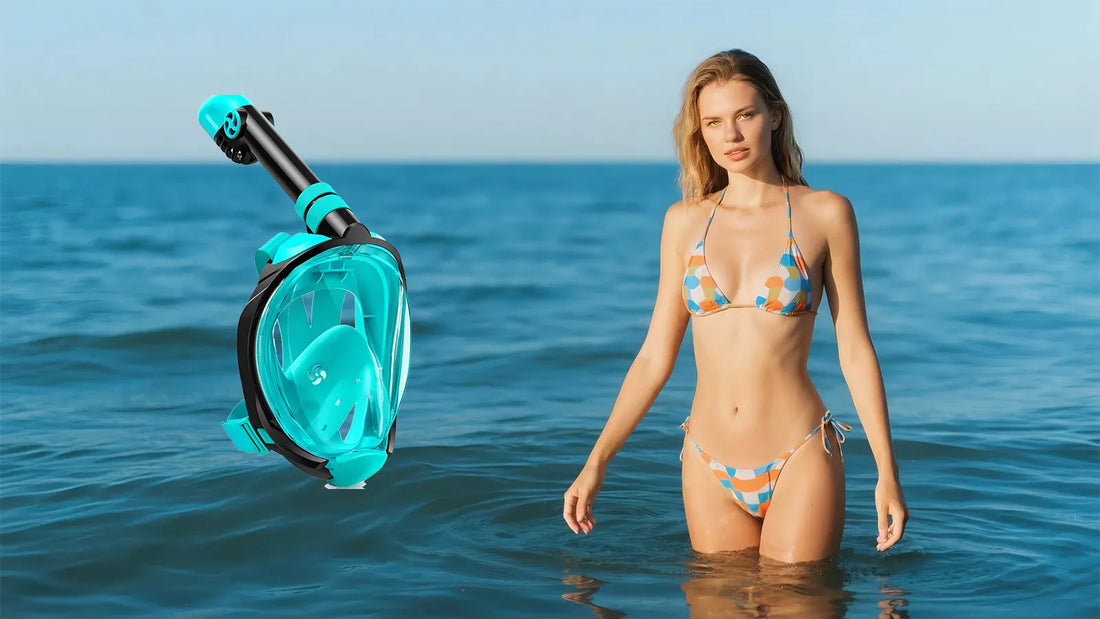Snorkeling is one of the most accessible and enjoyable water activities for people of all ages. But for beginners, the question often arises: is snorkeling hard? The answer depends on your comfort level in the water, your preparation, and your willingness to learn. In this guide, we’ll explore everything you need to know about snorkeling, from the basics to advanced tips, to help you decide if it’s the right activity for you.
What Is Snorkeling?
Snorkeling is the act of swimming on the surface of the water while wearing a mask, snorkel, and fins. The snorkel allows you to breathe through your mouth while your face is submerged, giving you the ability to observe underwater life without needing to come up for air frequently. It’s a popular activity in tropical destinations, where the clear waters and vibrant marine life make for an unforgettable experience.
Is Snorkeling Hard for Beginners?
For most people, snorkeling is not hard. It requires minimal equipment and no advanced swimming skills. However, there are a few challenges that beginners might face:
- Breathing through a snorkel: Some people find it uncomfortable to breathe through a tube at first. Practice in shallow water before venturing out.
- Equalizing pressure: If you dive below the surface, you’ll need to equalize the pressure in your ears, which can be tricky for some.
- Staying relaxed: Panicking in the water can make snorkeling difficult. Staying calm and focused is key.
Essential Snorkeling Gear
Having the right gear can make snorkeling much easier and more enjoyable. Here’s what you’ll need:
- Mask: A well-fitting mask is crucial for clear vision underwater.
- Snorkel: Choose a snorkel with a comfortable mouthpiece and a splash guard to prevent water from entering.
- Fins: Fins help you move efficiently through the water with less effort.
- Wetsuit or rash guard: These protect your skin from the sun and keep you warm in cooler waters.
Basic Snorkeling Techniques
Mastering a few basic techniques can make snorkeling much easier:
- Breathing: Practice slow, deep breaths through the snorkel. Avoid rapid breathing, which can cause fatigue.
- Floating: Use your fins to stay afloat and conserve energy. Relax your body to maintain buoyancy.
- Clearing the snorkel: If water enters your snorkel, exhale sharply to clear it.
Safety Tips for Snorkeling
Safety should always be a priority when snorkeling. Follow these tips to ensure a safe and enjoyable experience:
- Snorkel with a buddy: Never snorkel alone. Having a partner ensures help is available if needed.
- Check the weather: Avoid snorkeling in rough seas or strong currents.
- Stay within your limits: Don’t venture too far from shore or dive too deep if you’re not experienced.
- Hydrate and protect your skin: Drink plenty of water and apply sunscreen to avoid dehydration and sunburn.
Common Mistakes to Avoid
Even experienced snorkelers can make mistakes. Here are some common pitfalls to watch out for:
- Improperly fitting gear: A mask that leaks or fins that are too tight can ruin your experience.
- Overexertion: Snorkeling should be relaxing. Don’t push yourself too hard.
- Touching marine life: Avoid touching coral or marine animals, as this can harm them and you.
- Ignoring local guidelines: Follow any rules or recommendations provided by local authorities or tour operators.
How to Improve Your Snorkeling Skills
If you’re eager to take your snorkeling to the next level, here are some tips to improve your skills:
- Practice in a pool: A swimming pool is a great place to practice breathing and clearing your snorkel.
- Take a class: Many dive shops offer snorkeling lessons for beginners.
- Stay fit: Good physical fitness can make snorkeling easier and more enjoyable.
- Experiment with gear: Try different types of masks, snorkels, and fins to find what works best for you.
Snorkeling for Different Skill Levels
Snorkeling can be adapted to suit all skill levels:
- Beginners: Stick to calm, shallow waters and focus on getting comfortable with the gear.
- Intermediate snorkelers: Explore deeper waters and practice diving below the surface.
- Advanced snorkelers: Try snorkeling in more challenging conditions, such as currents or colder waters.
Benefits of Snorkeling
Snorkeling offers numerous physical and mental benefits:
- Low-impact exercise: It’s a great way to stay active without putting stress on your joints.
- Stress relief: Being in the water and observing marine life can be incredibly calming.
- Connection with nature: Snorkeling allows you to explore underwater ecosystems and appreciate their beauty.
- Social activity: It’s a fun activity to enjoy with friends or family.
Frequently Asked Questions
Here are answers to some common questions about snorkeling:
- Do I need to be a strong swimmer to snorkel? While basic swimming skills are helpful, you don’t need to be an expert. Staying relaxed and using fins can make it easier.
- Can I wear glasses while snorkeling? Regular glasses won’t work with a mask, but you can get a prescription mask or wear contact lenses.
- Is snorkeling safe for kids? Yes, snorkeling is safe for kids as long as they’re supervised and use appropriate gear.
- What should I do if I’m afraid of the water? Start in shallow water and take your time getting comfortable. Consider taking a class to build confidence.
So, is snorkeling hard? For most people, the answer is no. With the right preparation, gear, and mindset, snorkeling can be a fun and rewarding activity for anyone. Whether you’re a beginner or an experienced water enthusiast, the underwater world is waiting to be explored. Dive in and discover the magic of snorkeling today!

